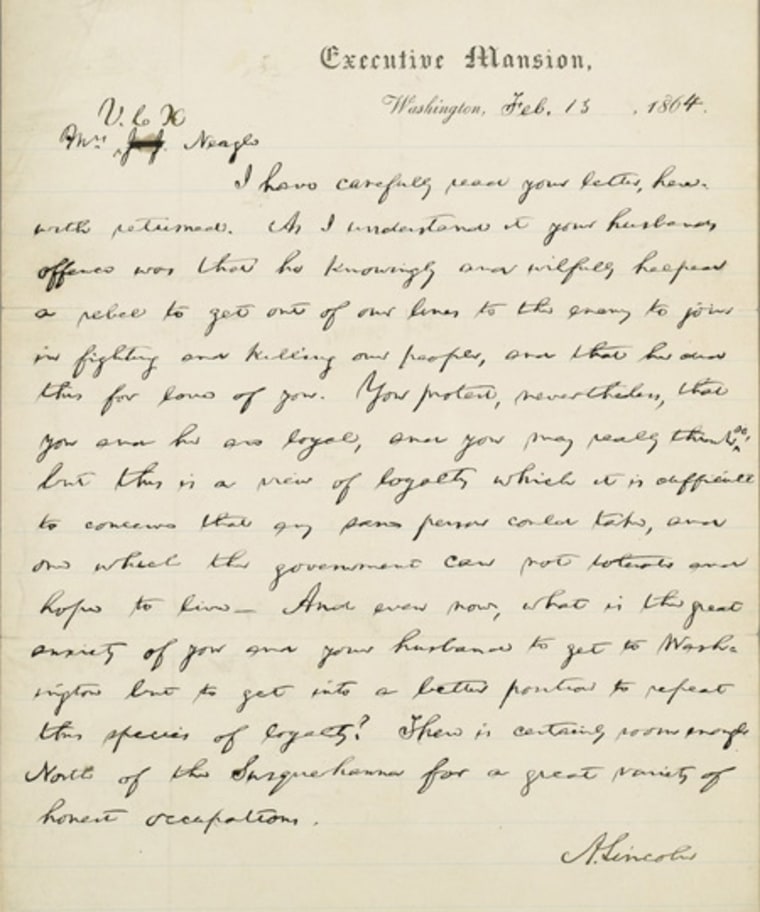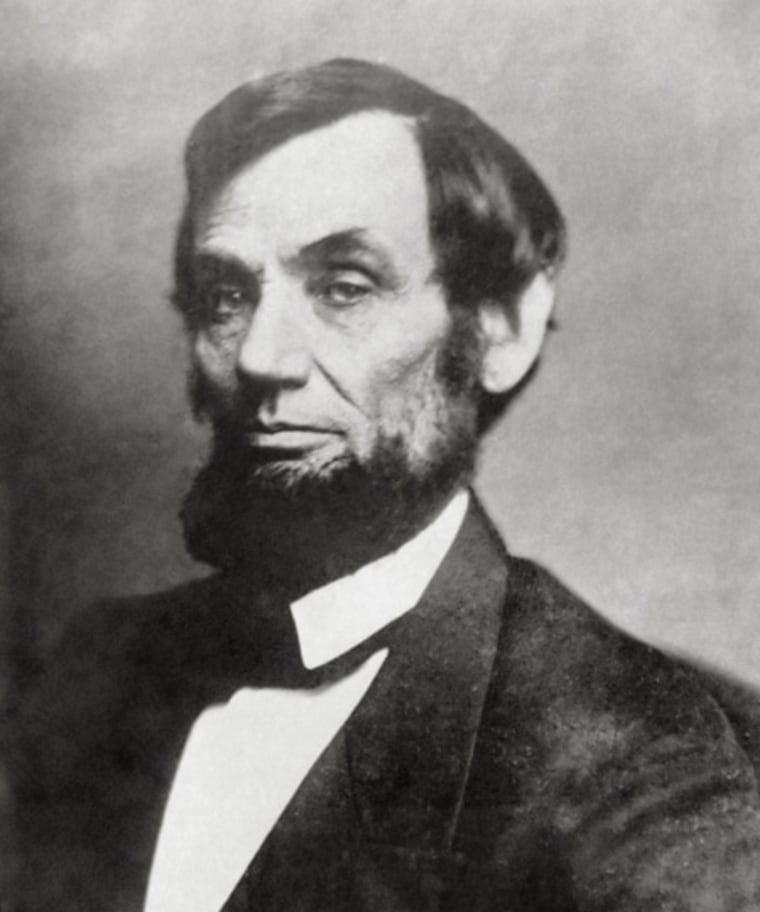Abraham Lincoln's emotions ran high during portions of the Civil War, suggests a newly documented letter, written by the former U.S. president, in which he harshly chastises a couple for disloyalty, at one point even suggesting their line of reasoning is insane.
The letter, written Feb. 13, 1864 to a Mr. and Mrs. Vch (sic) Neagle, only recently surfaced in preparation for an upcoming Sotheby's auction of important U.S. presidential and political books and manuscripts.
Part of the letter reads, "As I understand it your husband … knowingly and willingly helped a rebel to get out of our lines to the enemy to join in fighting and killing our people … You protest, nevertheless, that you and he are loyal, and you may really think so, but this is a view of loyalty which it is difficult to conceive that any sane person could take, and on which the government cannot tolerate and hope to live …"
Selby Kiffer, senior vice president of books and manuscripts at Sotheby's, told Discovery News he thinks Mrs. Neagle "must have approached Lincoln personally," begging him to pardon her husband, who was likely imprisoned for treason.
"Remember that Lincoln was trained as a lawyer, so usually he maintained a more neutral "sober" demeanor, so "it is uncharacteristic for Lincoln to allow himself to become so emotional. His frustration clearly comes out."
The story, however, doesn't end there. When the letter is flipped over, yet another note that Lincoln wrote to himself at a later point is revealed.
Lincoln mentions that Senator James Harlan of Iowa was "well acquainted with the (Neagle) family" who were "diligent friends." The senator proposed that Mr. Neagle's parole be enlarged so that he could visit Washington. General Edward Canby then endorsed the letter, so it is assumed that Mrs. Neagle's request was granted in the end.

James Cornelius, curator of the Abraham Lincoln Presidential Library, was very surprised by the letter when first informed of it by Discovery News.
"Harlan ended up being Lincoln's in-law," Cornelius said, referring to the fact that the senator's daughter Mary wound up marrying Lincoln's son Robert in 1868.
Cornelius, however, thinks Lincoln's final decision about Mr. Neagle was more about politics than family.
"Lincoln was not feeling optimistic at the time, as it didn't look like he'd be reelected," Cornelius explained, adding that, based on other documentation, Lincoln was also sick and possibly bedridden when he wrote to the Neagles. The day before he wrote the letter, he had also suspended the execution of a man named James Taylor, who was convicted of desertion.
"The Taylor decision was more typical of Lincoln, who often viewed deserters as 'leg cases,' since he felt that many young men listened to their legs rather than to their head when they ran away from battle," Cornelius said.
Mr. Neagle, however, fell into a different group. Cornelius said Lincoln nearly always took a harsh stance in cases of treason, slave trading and rape.
"Iowa was a good, anti-slavery union state," he said, so Lincoln probably felt appeasing its leaders was more important to the country than maintaining his original decision concerning Mr. Neagle, who was likely freed from prison when the war ended.
Although Lincoln must have won favor with the Neagles and Senator Harlan, he remained unpopular with many Americans both before and during the Civil War.
"Abraham Lincoln was one of the four most hated presidents in U.S. history," explained Cornelius. "The other three are Andrew Jackson, Harry Truman and George W. Bush."
The Lincoln letter will be sold at auction by Sotheby's Dec. 11, 2008. It is estimated to be worth between $250,000 to $350,000. Also included in the sale is an extremely rare copy — one of only 15-20 still known to exist — of the first volume of Thomas Paine's pamphlet series The American Crisis, written in 1776 when U.S. morale during American Revolution was low. It includes the famous line, "These are the times that try men's souls."
Multiple letters and documents by George Washington, Benjamin Franklin, Thomas Jefferson and John Paul Jones will also be included in the sale.
